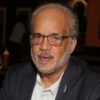1963 began lightheartedly enough for me with the best-selling comedy album, Vaughn Meader’s “The First Family,” a parody of President John F. Kennedy in the White House, playing in my home, the record having arrived as a holiday present. The year ended in devastation after Kennedy’s assassination on Nov. 22 and the subsequent crumbling of Camelot.
I was 13 and in the eighth grade as 1963 dawned, living in Ludlow, an integrated suburb of Cleveland. I was an afternoon newspaper boy. Black and white residents of Ludlow had created a community organization to combat the blockbusting tactics of real estate agents designed to panic white homeowners into selling to Blacks to avoid predicted lower property values once racial demographics changed. “Move before the neighborhood goes,” agents warned.
The Ludlow Community Association encouraged home sales to both white and Black buyers to maintain racial balance. The result was children of both races attended Shaker Heights Public Schools and played sports together. Ludlow straddled Cleveland and Shaker Heights but children attended Shaker schools. We were one of the Black families who had bought into the Cleveland side of Ludlow. My parents paid Cleveland city taxes and Shaker school taxes. The Shaker school system was one of the best in the country and remains so.
The mostly positive racial climate in integrated northern communities similar to Shaker Heights was promoted in part by policies of the Kennedy administration. On June 11, the president gave his historic speech on civil rights and federalized the state National Guard to desegregate the University of Alabama. The next morning, Mississippi NAACP leader Medgar Evers was assassinated in his driveway.
Up North, things remained fairly calm as school let out. After summer camp, my younger brother Jim and I spent two weeks in Piqua, Ohio, the tiny hometown of our father and his contemporaries, the singing Mills Brothers. We heard little talk about race in that mostly white town in southern Ohio. We hung out with a small group of Black and white kids, riding our bikes and turning over rocks in the shallow Miami Riverbed looking for salamanders.
The highlight of my summer was the musical “Bye Bye Birdie.” It took place in the fictional, Piqua-like Ohio town of Sweet Apple. I identified with the movie despite it starring an all-white cast featuring Dick Van Dyke.
One movie theater existed in Piqua back then and was practically the only place to go in the evening other than the Big Boy restaurant. As a result, we saw “Bye Bye Birdie” at least three times in those two weeks. By the time we went back to Cleveland, I — a Black kid perhaps forgetting who he was — knew every song in the movie.
Even the bombing of the 16th Street Baptist Church in Birmingham, Alabama that killed four little Sunday School girls on Sep. 15 didn’t disturb my youthful, carefree existence. Other than how the Cleveland Browns were going to do, the only thing on my mind was a girl.
Fall was soon turning into winter. Thanksgiving was less than a week away. Then on Friday, Nov. 22 everything changed.
Around 2:30 the principal came on the public address system to tell us President Kennedy had been killed in Dallas. He dismissed school early. I spent the entire weekend watching television. The funeral was on Monday. Sixty years later, I still get emotional recalling it.
Two years before, Kennedy had advised my father’s boss not to send me to Washington, D.C., to go to school and become a Senate page because the president said the town was too corrupt. My family moved to Ludlow instead.
By the end of 1963, with Kennedy’s death, I decided to run for president of my junior high’s student council. I won. In late 1966, I filled the same role at the high school and later wound up going to Harvard, his alma mater.
I can’t imagine how the world would be different had Kennedy lived. I do know he believed in the importance of the United States leading the global struggle to preserve democracy and human rights, and today he would insist on combating the threats against both at home and abroad. With the 60th anniversary of his death, we can honor his memory by continuing that fight wherever necessary, be it in our country, Haiti, Uganda, Taiwan, Ukraine or Palestine.
Jack Drewry is a Boston attorney and retired adjunct professor of juvenile law.







